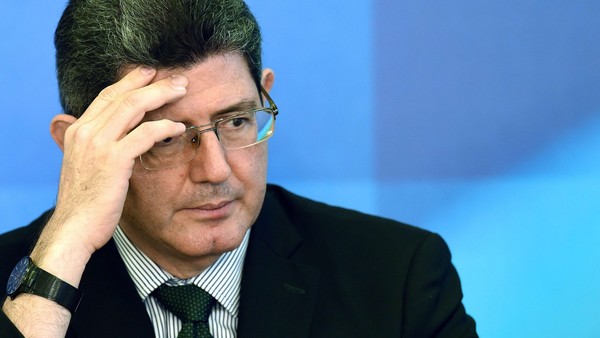Brazil announced an emergency R$65bn package of budget cuts and tax increases aimed at warding off further credit rating downgrades after Standard & Poor’s slashed Latin America’s biggest economy to junk last week.
The proposals, which include spending cuts and the reintroduction of a financial transaction tax, pushed Brazil’s currency up 1.43 per cent against the dollar to R$3.8154 while the benchmark stock index, the Ibovespa, rose 1.81 per cent to 47,238 points.
“A lot of these measures require the co-operation of congress to be put into practice and all of them demand commitment from society,” said Joaquim Levy, finance minister, announcing the budget cuts.
The proposals, which analysts said would be difficult to deliver, represent the third time President Dilma Rousseff’s government has changed its targets for the 2016 primary fiscal surplus, considered a key indicator of the health of Brazilian public finances.
They represent a complete reversal from two weeks ago, when the government announced targets for the 2016 budget which prompted the S&P to downgrade Brazil’s investment grade rating.
Ms Rousseff needs to restore confidence in the economy amid a deepening recession and growing talk of her impeachment only eight months into her second four-year term.
Mr Levy on Monday sought to present a united front with Nelson Barbosa, planning minister, after S&P cited differences in Brazil’s economic team over the need for fiscal austerity as one reason for the downgrade.
The ministers said the new package, if implemented, would deliver a primary fiscal surplus — the balance before interest payments — of 0.7 per cent of gross domestic product in 2016, instead of the primary deficit signalled in the budget presented two weeks ago.
“I find it very unlikely that we are going to have the conditions for this to be met,” said Bruno Rovai, a Barclays economist.
He said the government’s proposed budget for this year and next represented a contraction in spending of 4.2 per cent in real terms — more than any other government has achieved, even during Brazil’s boom years between 2003 and 2011.
Mr Levy said the proposed financial transactions tax would be likely to stay in place for four years.
Previous efforts to reintroduce the tax known as the CPMF - which was originally structured as a 0.38 per cent levy on nearly every transaction - have failed since it was withdrawn in 2008.
“Past form suggests there is good reason to expect actual budget savings to fall well short of government projections,” said Neil Shearing, of Capital Economics.
He said this was partly political, with a rebellious congress diluting many of Ms Rousseff’s proposals, but it was also because the deepening recession, expected to be Brazil’s worst since the 1930s, was sapping the government’s ability to generate a surplus.
Copyright The Financial Times Limited 2015. You may share using our article tools.
Please don't cut articles from FT.com and redistribute by email or post to the web.
Please don't cut articles from FT.com and redistribute by email or post to the web.


No comments:
Post a Comment